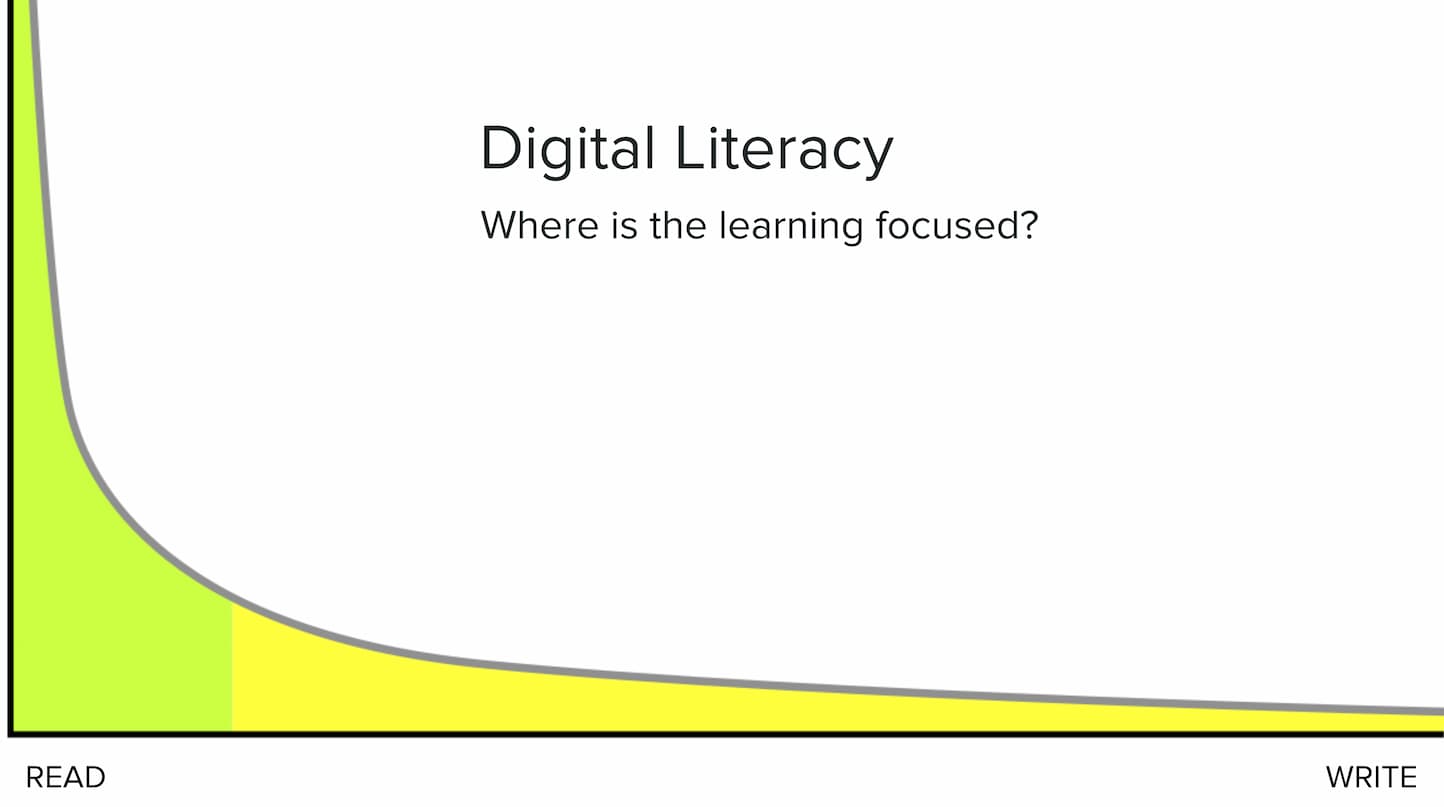Agency and Digital Literacy
Andrew Belegrinos
As published in ACER Connect Issue #250 - Agency and Digital Literacy.

The Organisation for Economic Co-operation and Development (OECD), a unique International Organisation that sets standards and defines best practices across global economic and social policy, has in recent years brought student agency into focus.
According to the OECD, student agency is defined as
the capacity to set a goal, reflect and act responsibly to effect change. It is about acting rather than being acted upon; shaping rather than being shaped; and making responsible decisions and choices rather than accepting those determined by others.1
Their Future of Education and Skills 2030 framework casts a wide net across a variety of domains ranging from, for example, student agency in well being through to student agency in sustainable development.
In this respect, how might we consider the intersection between student agency and digital technology?
So often a one way street, where students are the consumers or users of technology/data, the enactment of agency in a realm of online “metaverse” tech giants may at first seem a herculean undertaking. However, developing the right digital literacy skills can prepare students to shape this evolving space rather than only being shaped by it.
Just as literacy is characterised by the ability to read and write a human language, it may be extrapolated that digital literacy is characterised by the ability to read and write a digital language. Students typically learn how to use the various functions that systems/software make available, in a sense exercising the ‘reading’ end of the digital literacy spectrum, however they often have limited or many times no exposure to the ‘writing’ aspect of digital literacy, that is, learning to code. Given a student’s ability to affect change is at the heart of student advocacy, learning to code becomes a critical factor in empowering students to impact the digital space.

To take a concrete example: let’s consider Salaam. Salaam (which means ‘peace’ in Arabic) is a survival video game made by Lual Mayen. Lual was born in South Sudan during the outbreak of the Second Sudanese Civil War and spent 22 years living in a refugee camp with his family before moving to Washington DC 2. The character in Salaam is a refugee who must be kept alive throughout the game by collecting enough food, water, and medicine. In partnership with the United Nations’ High Commissioner for Refugees (UNHCR) and other NGOs, Salaam went on to support refugees through a novel mechanism where players who bought in-game resources would, through such purchases, donate those same items to refugees in reality.

Salaam - Video Games for Peace. 3
Beyond only the consumption of videos games, a command of both the ‘reading’ and ‘writing’ of aspects of digital literacy meant that Lual was able to bring his own experiences and goals to affect how others engage with the medium.
In this way, digital literacy is intimately connected with student advocacy in the digital technologies domain. To recognise this link may help to reframe how we think about the role of ‘learning to write’ in a digital sense (coding) and appreciate its importance as an agent of student advocacy in the modern world.
1 Oecd.org. 2021. [online] Available at:
https://www.oecd.org/education/2030-project/teaching-andlearning/learning/student-agency/in_brief_Student_
Agency.pdf
[Accessed 1 November 2021].
2 Washington Post. 2019. Once he was a refugee. Now he’s a CEO making video games for peace. [online] Available at: https://www.washingtonpost.com/videogames/2019/10/14/once-he-was-refugee-nowhes-ceo-making-video-games-peace/
[Accessed 1 November 2021].
3 Salaam in game image (featured image). [online] Available at: https://indiegamesplus.com/wp-content/uploads/2019/07/salaam-1.jpg
[Accessed 1 November 2021].